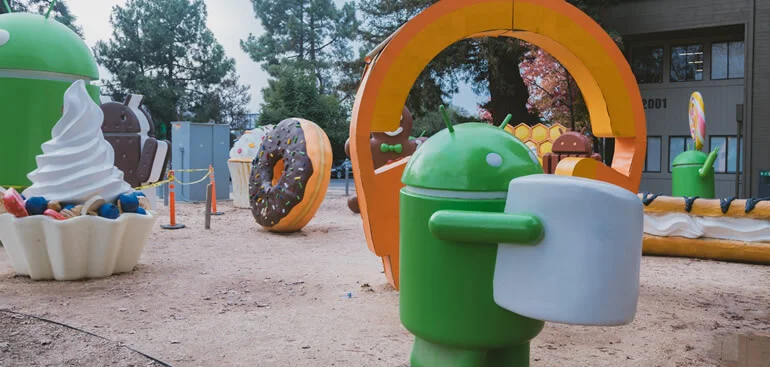Developing Android Applications Using the Best Programming Languages
Android applications play a vital role in our daily lives. With most services being available online, users rely on Android applications for various tasks such as listening to music, sending messages, checking emails, and even ordering food or other items. These applications make almost everything possible. Let’s explore some of the best programming languages for Android application development.
About Programming Languages
Programming languages are a means of interacting or communicating with your system or device. As computers understand only binary, which is the machine-level language consisting of 0s and 1s, we need a programming language to translate our instructions into a machine-understandable language. Therefore, the programming language plays a crucial role in interacting with a system or device and executing the desired actions.
When it comes to Android devices, we need Android applications to interact. Developing these Android applications requires knowledge of a programming language. The Android operating system is primarily written in Java and its low-level libraries are predominantly written in C++.
Top 8 Programming Languages for Creating Android Applications
Currently, there are several programming languages that can assist you in creating your Android applications. Some of the most commonly used programming languages for Android development include:
- Java
- Kotlin
- Dart
- C#
- C++
- Python
- Lua
- JavaScript
Now, let’s delve into each programming language for developing Android applications in detail.
- Java
Java is known as the official language for Android application development. However, Java is gradually being replaced by a more concise and secure language known as Kotlin. Most apps published on the Google Play Store are built on Java, making it a significant language.
Java is a comprehensive language encompassing many concepts such as method overriding, constructors, encapsulation, classes, objects, arrays, exceptions, null pointers, etc. If you’re a beginner seeking something easy to start with, Java might not be the best choice.
Despite its apparent complexity, Java is a great language to learn and implement. Knowing Java not only helps you understand concepts like Object-Oriented Programming but also gives you an edge in creating server applications using JSP (Java Service Provider).
- Kotlin
Kotlin is one of the trendiest and most popular languages for developing Android applications. It’s an open-source programming language that allows you to write concise code with increased security. Kotlin has gained considerable attention in recent times, making it relatively easier for beginners to learn and apply in Android development.
Developers at Zomato, a renowned food delivery app, use Kotlin for coding their applications. With Kotlin’s help, Zomato significantly reduced the code length for their applications.
Kotlin has a much simpler syntax compared to Java and requires fewer lines of code. Kotlin was officially announced as an Android app development language by Google in 2019. It can run on the Java Virtual Machine and might eventually replace Java in Android development.
- Dart
Dart is one of Google’s newest languages developed for Android application development. Its stable version was released in 2021 and is currently gaining a lot of traction. Dart is typically used to develop client-side applications. Its syntax is similar to the C-style syntax and supports object-oriented programming.
Dart syntax is relatively straightforward compared to other languages and is used to create some beautiful UI components. It gained popularity mainly due to the Flutter framework. Flutter is known for developing multi-platform applications with Dart, enabling apps for platforms like Android, IOS, and even desktop. The Dart community is expanding, positioning it slowly as one of the best languages for Android development in the market.
- C#
C# is also one of the most commonly used programming languages for Android development. Its syntax is quite similar to Java and also provides garbage collection similar to Java. In the case of C#, the probability of memory leaks is lower due to a distinct garbage collection mechanism.
C#, however, did not achieve significant stability in Android development due to the lack of platform support initially. In its early days, C# was only supportive in .NET framework systems like Windows. With the arrival of Xamarin and Unity, this issue was resolved. Xamarin and Unity provide an Android SDK that helps in coding Android applications using C#. Xamarin is used for developing cross-platform applications, and Unity is well-known for developing cross-platform games using C#.
- C++
C++ utilizes the Android Native Development Kit (NDK) for developing Android applications. Both C++ and NDK are required to create an application. Its syntax becomes quite complex, requiring comprehensive knowledge about C++ core libraries. Therefore, you might opt for Java or Kotlin instead of C++.
- Python
Python is another way to create excellent Android applications. However, you cannot provide native features using Python. You have a library called “Kivy” in Python, which helps you build Android applications faster. Python, however, is a powerful language, but I wouldn’t recommend it for Android development as it’s not as suitable compared to other languages.
- Lua
Lua isn’t very popular these days, but it’s still a good alternative for developing Android applications. It’s primarily used in conjunction with Corona SDK, which provides features for developing native Android applications. It comes with Corona Simulator and Corona Native.
Learning Corona SDK is easy, but it’s primarily used for developing graphic applications and games. However, you can also use it to develop native applications.
- JavaScript
JavaScript is quite familiar to most web developers. It’s predominantly used for web development, and most developers are familiar with this client-side scripting language. JavaScript has various frameworks like React, Vue, and Angular. These frameworks can be used for developing Android applications as well.
Two good examples are React Native and Ionic, which use JavaScript and HTML and provide you with the capability to create applications for cross-platforms. If you’re a web developer looking to venture into Android development, using React Native or Ionic is the best approach.
Why Kotlin?
As previously discussed, Kotlin is now recognized by Google as the official language for Android development. Not only is it the official language, but it’s also straightforward to learn and understand. The code written in Kotlin is concise and secure. When writing Kotlin code, you don’t need to worry about semicolons; the null pointer exception is simply indicated by the ‘!’ symbol.
Applications Developed Using Kotlin
Kotlin is currently one of the most popular languages, and many application developers use Kotlin to build their applications. A good example is Zomato, which uses Kotlin to reduce the length of its code and make it concise and secure.
In summary, this information covers:
- Highlighting the programming languages that support Android application development.
- Demonstrating how programming languages work.
- Listing the top 8 programming languages used for Android development.
- Explaining how these programming languages are used for Android development.
- Showing the advantages of using Kotlin in Android development.






